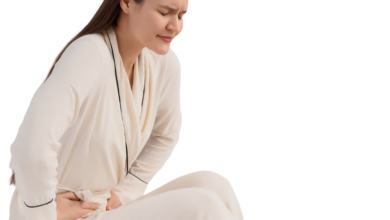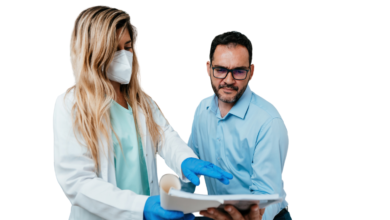Blog
Stress Management and PCOS: Coping Strategies
Stress Management for PCOS: A Guide to Feeling Better

There’s a significant link between stress and PCOS. While stress doesn’t directly cause PCOS, it can exacerbate symptoms and make managing the condition more challenging.
The Link Between Stress and PCOS
- Hormonal impact: When you’re stressed, your body releases cortisol, a stress hormone. Chronically elevated cortisol levels can worsen insulin resistance, a key factor in PCOS. This can further disrupt hormonal balance, leading to more irregular periods, increased androgen levels, and weight gain.
- Worsening symptoms: Stress can intensify PCOS symptoms like acne, hair loss, and mood swings.
- Lifestyle factors: Stress can lead to unhealthy coping mechanisms like poor diet, lack of exercise, and sleep disturbances, all of which can negatively impact PCOS.
Stress-Reducing Techniques
Incorporating stress-reducing techniques into your daily routine can significantly improve PCOS management and overall well-being:
- Mindfulness and meditation: Practicing mindfulness and meditation can help calm the mind and reduce stress hormones. Even a few minutes of daily meditation can make a difference.
- Yoga and tai chi: These mind-body practices combine physical postures, breathing exercises, and meditation to promote relaxation and reduce stress.
- Regular exercise: Physical activity is a powerful stress reliever. Exercise releases endorphins, which have mood-boosting effects.
- Deep breathing exercises: Taking slow, deep breaths can activate the body’s relaxation response and reduce stress.
- Spending time in nature: Studies have shown that spending time outdoors can lower cortisol levels and reduce stress.
- Engaging in hobbies: Making time for activities you enjoy can help you relax and de-stress.
- Getting enough sleep: Prioritize getting 7-9 hours of quality sleep each night.
- Healthy diet: A balanced diet can support hormonal balance and improve mood.
- Social support: Connecting with friends, family, or support groups can provide emotional support and reduce feelings of isolation.
- Professional help: If you’re struggling to manage stress on your own, consider seeking professional help from a therapist or counselor.
PCOS Symptoms
Physical Symptoms:
- Menstrual irregularities.
- Hirsutism.
- Acne.
- Weight gain or difficulty losing weight.
- Hair loss.
- Skin problems.
- Polycystic ovaries.
- Infertility.
Emotional Symptoms:
- Mood swings.
- Anxiety.
- Depression.
- Body image issues.
When to See a Doctor
Consult a doctor if you experience:
- Irregular periods.
- Signs of excess androgens.
- Difficulty conceiving.
- Symptoms of depression or anxiety.
- Difficulty managing stress.
The Role of Diet in PCOS
- Focus on whole foods.
- Prioritize complex carbohydrates.
- Include lean protein.
- Choose healthy fats.
- Limit processed foods, sugary drinks, and refined carbohydrates.
- Consider a low glycemic index (GI) diet.
- Increase fiber intake.
- Consume anti-inflammatory foods.
Causes of PCOS
- Insulin resistance.
- Hormonal imbalances.
- Low-grade inflammation.
- Genetics.





